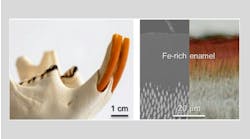VERSAILLES, Ohio--Midmark Corporation has announced that the company's products manufactured with composite wood components are now in compliance with the California Air Resource Board (CARB) Phase 2 airborne toxic control measure to control formaldehyde emissions from composite wood products.
To read more about Midmark, go to Midmark.
Midmark received formal recognition of Phase 2 compliancy May 16, 2011, well in advance of the Dec. 31, 2011, compliance date for goods fabricated with wood composite parts.
Midmark products manufactured with composite wood components include Midmark and Ritter casework, Integra operatory casework and Artizan dental furniture, as well as upholstered items with composite substrates.
“At Midmark we continually strive to provide our customers with healthcare solutions that promote more efficient, effective patient care,” commented Greg Blackmore, Midmark chief operating officer. “Being CARB Phase 2 compliant allows us to provide our customers with healthier, more environmentally friendly products that promote workflow efficiencies and positively impact the practice of health care.”
In 1992, the state of California deemed formaldehyde as a toxic air contaminant, claiming that there is no safe level of exposure for humans. Then in 2004, the International Agency for Research on Cancer (IARC) classified formaldehyde as “carcinogenic to humans” based on the increased risk of nasopharyngeal cancer.
It was then that a formal rulemaking process was conducted to address formaldehyde exposure from composite wood products, resulting in the April 2007 airborne toxic control measure (ATCM) to reduce formaldehyde emissions. The ATCM applies to composite wood products, including hardwood plywood, particleboard, medium density fiberboard, thin medium density fiberboard and other furniture and finished products containing composite wood parts.
In April 2008, the ATCM to reduce formaldehyde emissions was approved by the Office of Administrative Law and was filed with the California Secretary of State to be codified into Title 17 of the California Code of Regulations.
Midmark uses particleboard and medium density fiberboard in the fabrication of its cabinetry products. Since receiving its Phase One compliancy in January 2009, Midmark has cut formaldehyde emissions from its products in half in order to comply with CARB Phase 2 standards.
In addition to reducing formaldehyde emissions, the Midmark casework line and Integra operatory casework offering use NAUF (no added urea formaldehyde) substrates that can positively impact LEED credits for customers’ green building projects.
For more information, call (800) MIDMARK or visit midmark.com.
To comment on this subject, go to community.pennwelldentalgroup.com/.
Latest
Latest





